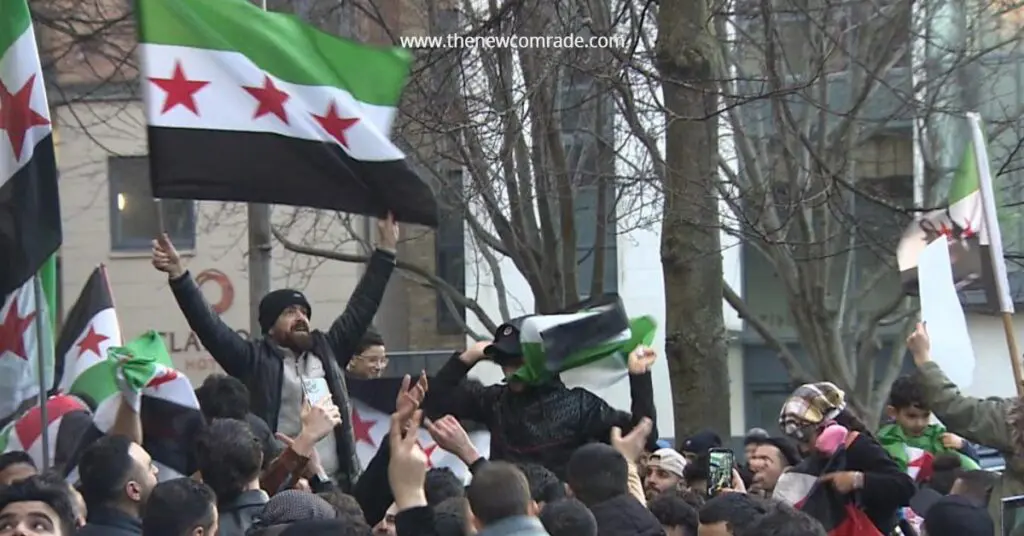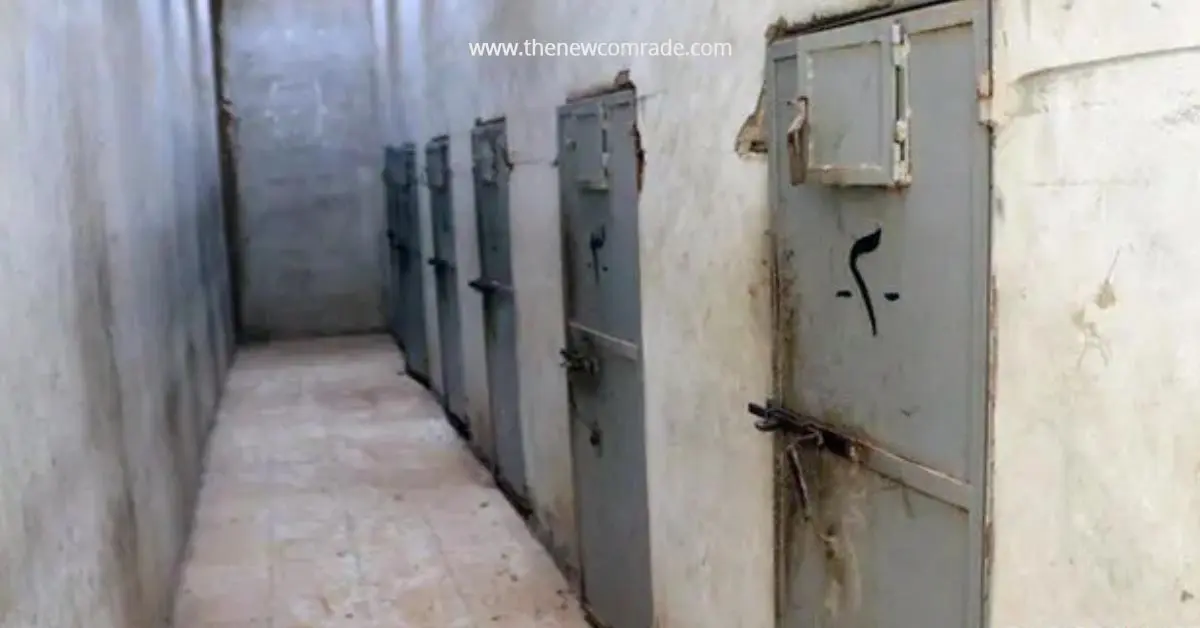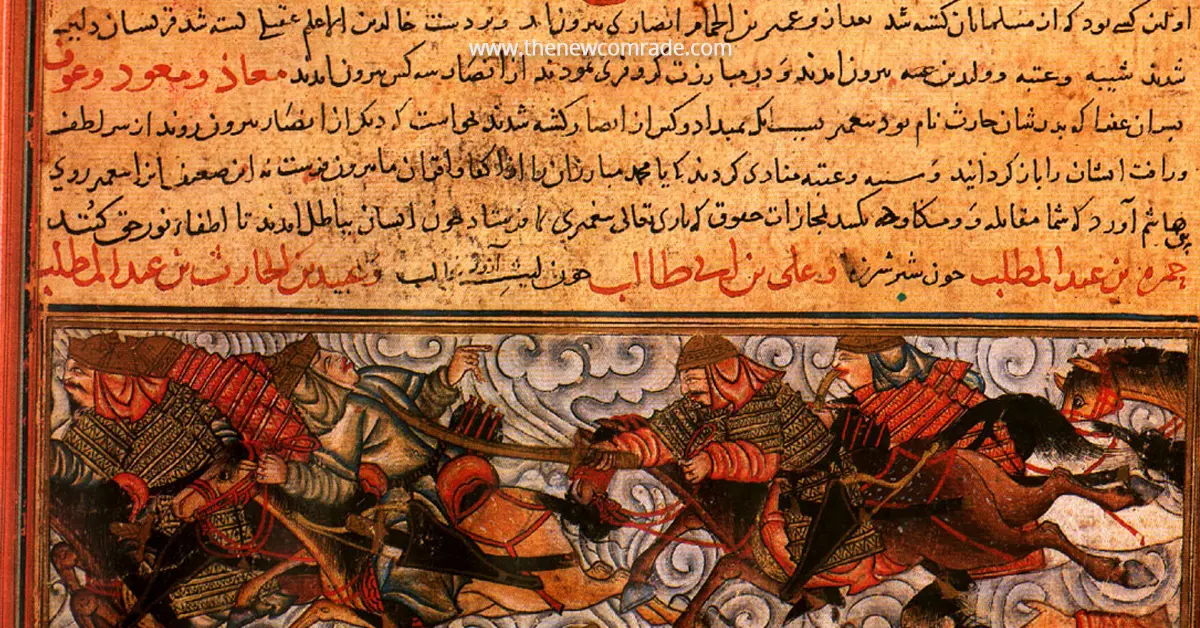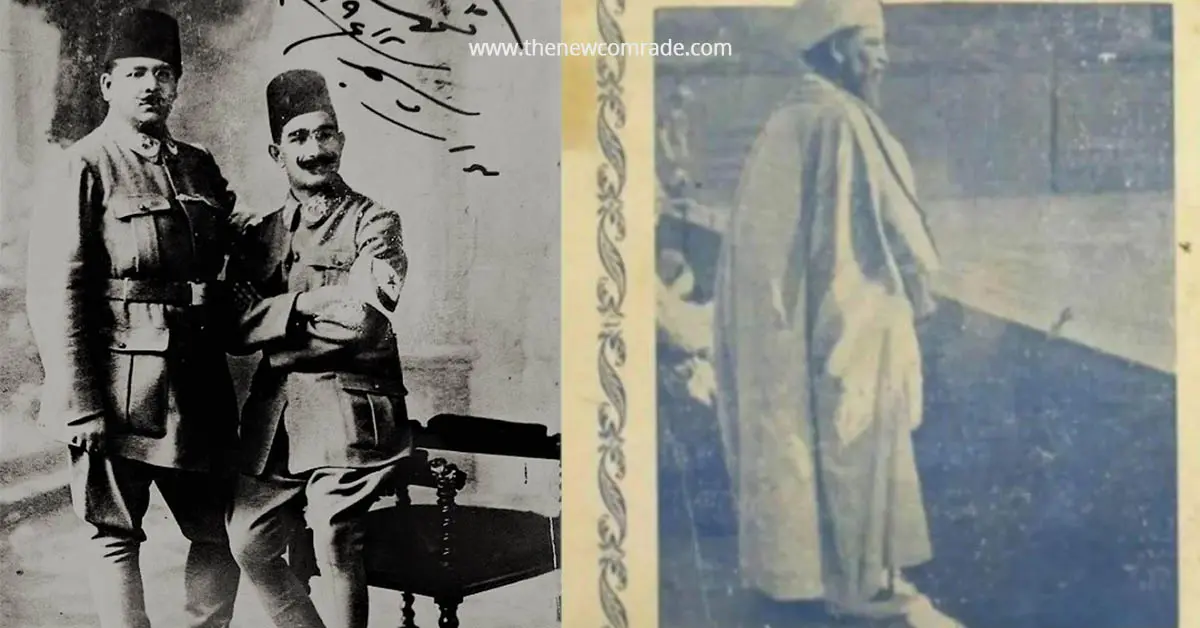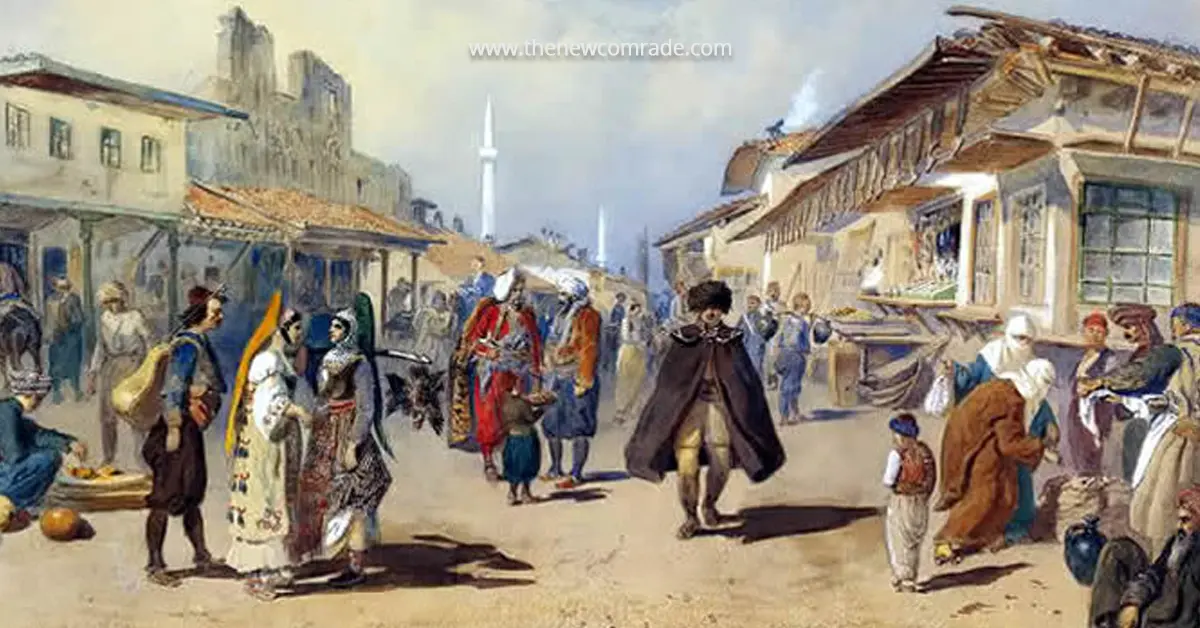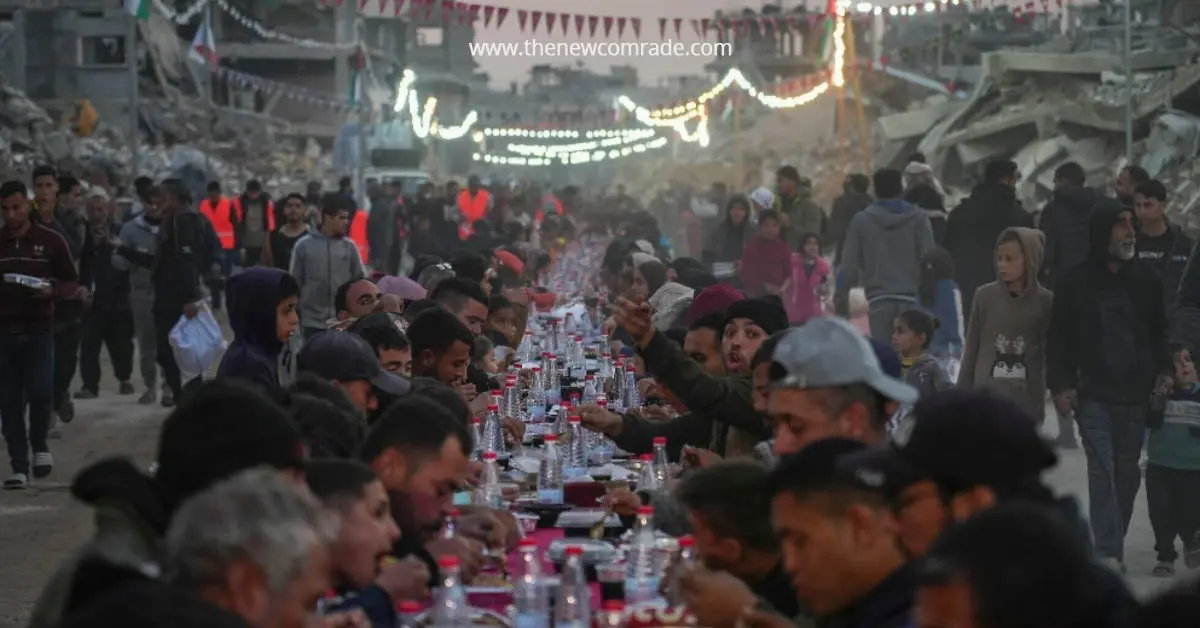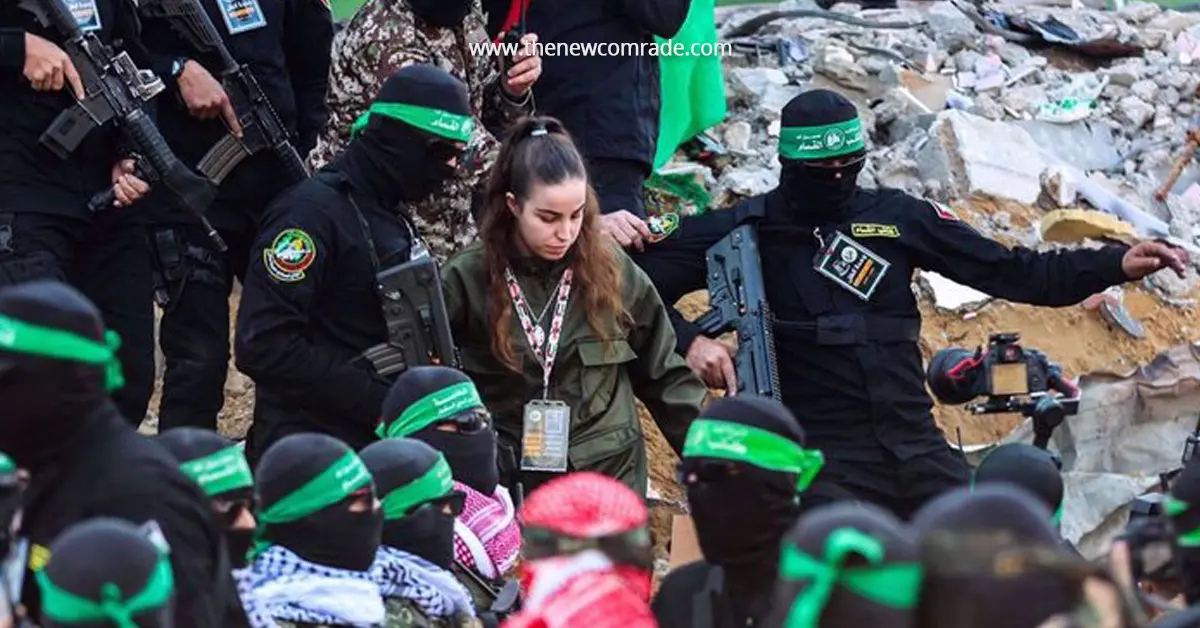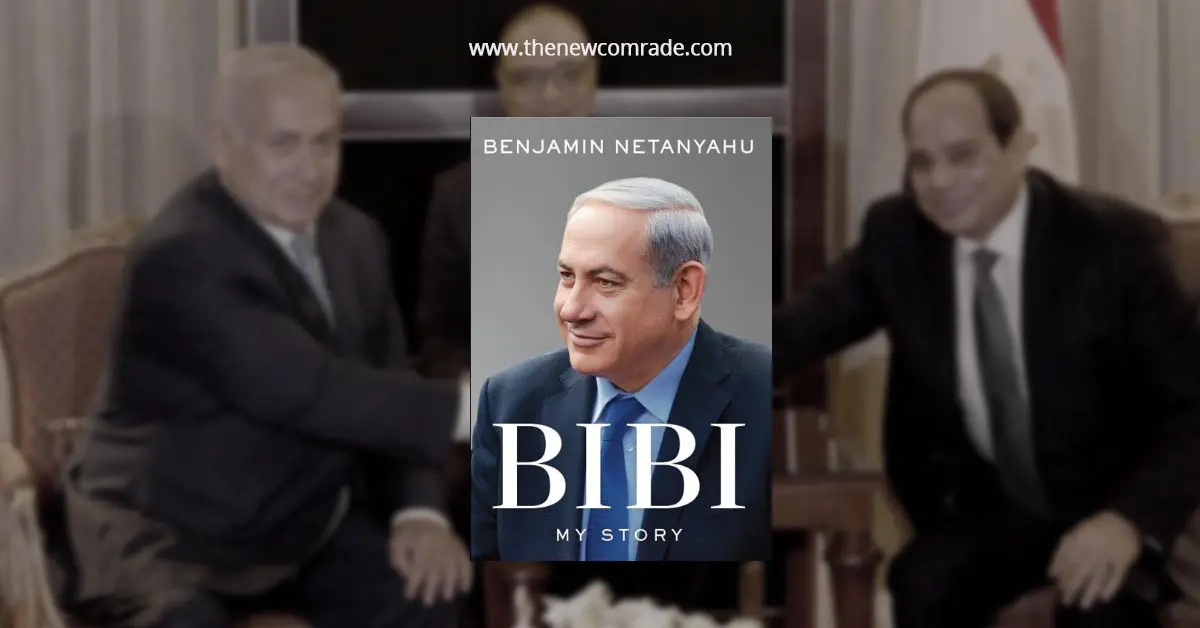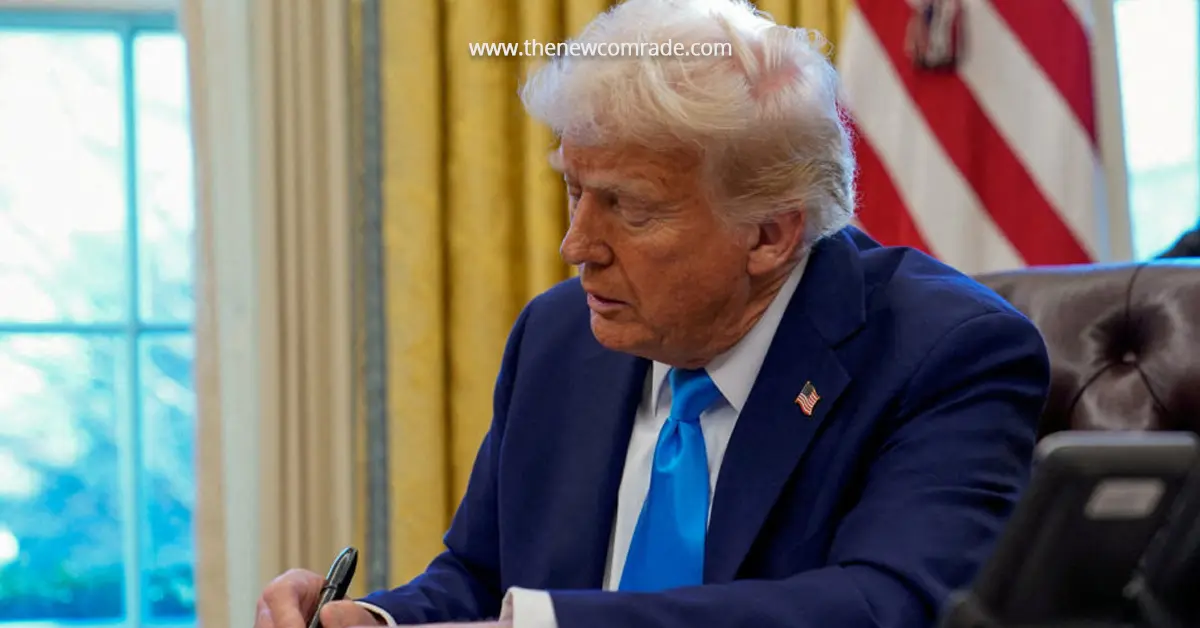This is a transcript of the author’s original speech
I would call the recent developments as “Levant storm” after the blessed operation that preceded it, viz. “Aqsa storm”. These good tidings come to Ummah with this second great stride after the Palestine one. Levant storm brings us to the hadith in which Mohammed SAAWS says: < When the inhabitants of Levant become corrupt, then there is no good left for you. There will never cease to be a group in my Ummah who will be helped (by Allah), they will not be harmed by those who forsake them until the doomsday >.
Indications of Levant storm and Aqsa storm
Impossibility of failure of Allah’s cosmic laws:
One of Allah’s laws is that He is kind to the weak and moves them in gradual stages until they reach the stage of empowerment, along with its conscious, subconscious and unconscious states of mind.
<< But it was Our Will to favour those who were oppressed in the land, making them leaders as well as inheritors, to empower them in the land and, through them, show Pharaoh, Hamân, and their soldiers what they feared. >> (28 : 5)
In the usage, “making them leaders as well as inheritors,” underlies a very important sign. Oppressed people advance and free themselves from the stage of oppression and enter the stage of confrontation before reaching the stage of empowerment. In such a stage Allah sends leaders among them and makes them the inheritors. This inheritance is the inheritance of know-how, experiences, military action and, ultimately, land. A recent example of the same being realised is liberation of Afghanistan. This, viz. the first indication, is the emergence of leaders and inheritors, or in other words, inheritance of the stride and sacrifice.
First condition for the liberation of Masjed al Aqsa is the eruption of all cities in Levant with this battle, and transformation of power centres of Ummah from virtual battles to real battles
As such, the limited battle in Palestine cannot reach its extent – unless Allah Almighty wills – without the rest of Levant, similar to how Salaheddin al-Ayubi did. If Levant and the rest of the strategic depths of Ummah, most importantly the primary and central one – Egypt, had not joined his battle, Masjed al Aqsa would not have been liberated yet. When the revolution is renewed in Levant, it is an indication that matters are heading towards such a point, Allah willing.
As for the transformation of power centres of Ummah, this is yet to happen, as the conflict would have to move to different regions, but most of the power centres of Ummah.
Experts are still living in virtual battles and have not drawn near to the real ones. Though conflicts had erupted in Libya, Egypt, Yemen, Iraq, and currently Sudan, the enemy has gone clandestine in these places and besieged the Ummah in virtual battles.
Among the conditions for liberation of Aqsa is the centrality of Levant in this conflict
Prophet SAAWS has taught us about centrality and importance of Levant in various occasions. Qur’an too has denoted about this fact.
<< … We inherited oppressed peoples east of the region and its west, which We blessed … >> (7:137)
Qur’anic commentators have specified this region to be Levant. Hence, if the conflict does not develop and manifest there, this indicates that the Ummah is trailing behind in this battle. Further, Levant lies at the centre of overpowering of the Ummah, by various entities extending from as far as Pacific Ocean, as the Prophet SAAWS has taught us (“tadaa’i-l-umam”).
Transition of the various constituent peoples of Ummah from stage of dismembering and disturbing existing power equations.
Power equations implied here is those created by Crusaders, Zionists, Iranian project and tyrants of Muslim world. Ummah has passed through the first stage of liberation, in form of the Arab revolutions preceded by struggles of Iraq and Afghanistan.
This is to be followed by a stage of Ummah trespassing into that power equation. The current power equation is based upon the military, political, security aspect, and economic aspects, which were established by the Crusader campaign and its supporters in the Arab and Muslim world. Thus, if the Ummah does not have a military factor of its own to counter the existing ones, and similarly security factor, political factor, and economic factor of its own, this means that it has still far to advance in its battle. What we are witnessing now, be it in Aqsa storm or in Levant storm or in Afghanistan, is the herald of this transformation and transition from the stage of the combined power of Crusaders, Zionists, hypocrite regimes and Safavis to the stage of Ummah trespassing that equation.
Operations and changes based on sacrifices of people
Masses, who sacrificed their blood and money and migrated for the sake of Allah, are currently subject to poverty and lack of security. This is what the Palestinian people are facing, in terms of sacrifices of over a century, or similarly so is the Afghan people since over 4 decades, and the Syrian people over 4 decades – it was in 1979 ~ 80 that the first popular uprisings took place against Hafez al Asad regime. Current military operations and political changes is a process of “inheritance” resulting from these blessed sacrifices.
Comprehending lessons of Arab revolutions
Arab Spring revolutions had started unexpectedly. Consequently, masses had tried to benefit from that great stride and chaos. They were able to topple the pioneers of “coercive” rule (“mulk al jabri”) – Hosni Mubarak, Muammar Qaddafi and Ali Abdullah Saleh fell and Bashar al-Asad was shaken.
First one to be shaken and to fall was Zine-al-aabidin Ben Ali in Tunisia. Leaders of the revolution at the time had not matured enough in planning and managing the situation, and thus it got thwarted by enemies. It was necessary for the masses to learn a new system of performance, and also for the leaders to better comprehend lessons of the Arab Spring revolutions. Most important of these lessons are: Maintaining Command and control (C2). Be it Yemen, Tunisia, Egypt or Syria in the earlier stages, there was a big miss in this aspect. When the leaders of masses regain command and control, as witnessed in the performance of mujahedin in Gaza and Jerusalem, since more than a year, fighting American crusaders and its supporters. Command and control is among the most important factors visible in the current arenas of jehad, be it Palestine or Syria.

Investing opportunities, no matter how limited
For example, one of these opportunities is that Hamas entered the so-called Palestinian Authority. Some of us expected that this entry would waste jehad and its future in Palestine. Palestinians proved that they were aware of such a prospect, and the opportunity that was available to them – despite its limitations. Aqsa storm was made possible by the virtue of them utilising energy and time and establishing an infrastructure that could stand in the face of Zionists till date. We also saw mujahedin in Idlib invest such opportunity with the limited authority they had, along with the rest of factions in north Syria, in order to build themselves. Turkey was also present in investing such opportunities, be it assuring an asylum in these liberated areas adjacent to their border or in intervening in creating the situation that we see now. Turkish military presence and its playing with the world order, especially with the eastern bloc, viz. Russia, and its regional ally Iran – which is a hostile parasite in the body of Ummah.
Among the opportunities: victory of Taliban over American Crusaders
Victory of Taliban over American Crusaders after 20 years of jehad led to the fall of America from its uncontested power status, and other “poles” became more pronounced in their confrontation of America, such as China and Russia. In the basic area controlled by America, viz. West Asia and North Africa – that constitutes the heart of Ummah, they had begun to gradually disengage, and placing their agents to manage the conflict on their behalf. We could see the broad space accorded to UAE & transfer of Zionist entity from the European Command of US Army to the Central Command as broader manifestations of this phenomenon.
Among the opportunities: Trespassing of power balances led by Erdogan
The trespassing secured by Erdogan in power balances is attributed to the empowerment of shari’ah and the return of Ummah to the centre-stage after more than a century. It is noteworthy that leaders of Ummah, when the Arab revolutions were aborted, did not find an apt asylum other than Turkey. One could dread imagining what could have happened had they remained under the direct control of the crusaders or under the control of their agents in Egypt or elsewhere. There, however, is a tendency to look at things from distant positions and devoid of direct conflict, i.e., on theoretical plane, bereft of practical, military or political considerations. This makes many theorists not appreciate the achievements and opportunities on ground. Hence, we ought to consider the blessed add-ons in a fair manner – that of people of Afghanistan, that led by Erdogan, that led by mujahedin in Libya and Iraq – though of a limited scope and nature. These are all paving way for the empowerment of Ummah.
Among the opportunities: acceleration of collapse of coercive powers, and that construction is to preceded by demolition
Arab revolutions had come to demolish primarily, not to build. Those in a haste take to planning and starting a building process, while, in reality, it is imperative to have multiple stages. There are efforts made by the existing world order to consolidate their grip. We could see how the Arab regimes have many a time misled and played with revolutionaries and breached into the space they created, as what clearly manifested in Sudan.
Channelling manpower and resources
There was no channelling of men and energies to match the challenges of this conflict between Ummah and its foes. In Palestine, Syria, Afghanistan, there was sufficient preparation done and keeping a sense of how much of focus rest of arenas deserved.
Understanding development of war tools and conflict strategies
This meaning is clear in what was accomplished by mujahedin in Aqsa storm and what is being accomplished in Levant storm. War tools, strategic plans, penetrations, cyber warfare and espionage are all to be properly comprehended and utilised. Afghans are currently working actively to establish pillars of state – in its security, military, economic, technical aspects.
Importance and risks of timing
• Igniting conflict between enemy entities
With the outbreak of Ukraine war, the area of conflict moved from the “centre”, viz. arenas of Muslim nations, after a long time. While they had meticulously agreed in the past to exercise restraint amongst themselves, Allah willed to ignite war between them. Stages of Ukrainian war steadily progressed to the point of using the nuclear threat. This ignition of conflict between various enemy nations is an important opportunity and comes at an vital timing – be it in terms of advancement of Zionist project or world order. Revolutionaries of Levant made opportune utilisation of the given time.
• Expanding crises in the world order
Many crises are looming, e.g., possible Taiwan / East China Sea War, Korean War, South China Sea War, etc. By means of the current developments, Levant and Mediterranean has entered this realm.
Existential, doctrinal and geographical weight of Ummah
All the scum of the earth (Iranians and their militias and gangs, Americans and their gangs and militias, Zionists, Russians, etc.) who seek to control the masses of Ummah are currently suffering setbacks. They had not paid attention to a vital fact that turned tables in the favour of Ummah – i.e., its existential, doctrinal, and geographical weight. Irrespective of the magnitude of attempts to infect it with various sorts of viruses, usage of agents or militias for this purpose, this fact could not be undone. We have gone through two adverse stages; first, wherein the enemies were able to transform their military invasion to a political system and install armies and monarchs as leaders of Ummah. With the Ummah shedding off this mantle, enemies have no longer been able to change the military nature of the conflict in spite of their active attempts of more than past twenty years. So do we find Egyptian military, Algerian military, Arab monarchs invariably desperate & facing setbacks. If the masses of Ummah are pushed towards a clear vision and stay steadfast to the rope of Allah on a project, then it is a matter of time until Ummah reclaims its lead position, power, and legitimacy.
Time for Iranian project to exit
Iranian project has kept deceiving Ummah since 1979. It began with Khomeini’s alliance with Hafez al-Asad during the first Syrian revolution (1979 ~ 1980), killing tens of thousands then and more progressively. Such deceptions worked on two planes, viz. moral and military / security. The moral deception worked to portray them as resistance and leadership and their proxy figures like Hasan Nasrallah as equivalent in standing to genuine leaders of Ummah like Ahmed Yasin. This deception has waned now. As for their military power, this has been curbed in course of the recent developments of Zionists targeting Hezbollah and their supplies.
Second Issue | Fundamental and critical duties in the course of investing in Levant Storm
● Maturing Ummatic project (achieving comprehensive Ijtihad that Ummah needs)
It is no longer useful in the reality of Ummah to work upon project of a mere group or to address a particular arena bereft of the fundamental ceiling that nations ought to possess, viz., grand strategy, milestones, its structure, institutions, etc. Currently these questions have not matured. First fundamental duty is to mature such a Ummatic project, or in other words, achieve a comprehensive ijtehad to empower Ummah. We can only describe it by its first and basic characteristic, that it cannot be a mere jehad project or a mere intellectual project or a purely moral exercise, etc. Though this project would contain elements of all these, the basic characteristic remains that it is an empowerment project.
Initial questions: Who executes this project
<< … Obey Allah and obey His Messenger and those in authority among you. Should you disagree on anything, then refer it to Allah and His Messenger …>> (4 : 59)
Currently Ummah has various conflicting visions. Such conflict in political issues, in face of a dangerous world order and international relations could be resolved only by referring to divinely mandated authorities “ulu-l-amr”. These authorities as specified by Qur’anic exegetists, are: religious scholars, people of power, and experts in various fields. Scholars are knowledgeable in religious precepts and requirements. People of power have practical paths and are concerned with the direct conflict in military and security dimensions. They are formed as result and in the circumstances of major live problems and being forced to deal with them. Practical performance matures them directly. The maturity mentioned here implies coming of stage of developing comprehensive perspectives, based on Shari’ah, in the major disasters that has befallen upon Ummah and diagnosing them aptly. Such perspectives are not limited to intellectual / philosophical propositions, or strategic / political analysis, or a vision for a particular group or trend – though all these may be benefited from.
Saadeddine Othmani is an example in this regard of what ought not to happen.
Despite claiming to be associated with an Islamic group, he became the person, in his capacity as the Prime Minister under the Moroccan monarch, to formally establish diplomatic ties of Morocco with the Zionist entity. He still happens to be celebrated in various circles. This could be seen as a result of limiting oneself to intellectual propositions or political analyses within the ceiling of Moroccan nation-state.
So long as scholars do not tread into these domains, devote themselves to and hasten to sail in these waters, we would be forced to work on the margins of projects of others.
We have seen that Palestinians were forced to work on the margins of the Iranian project. With the outbreak of Aqsa Storm, the reality of this relationship was tested. Here, their paths diverged completely. Future of Syria ought to be followed in this aspect – as to where it is poised to lead, after the huge amount of blood of Muslims that has been spilled. Further, so long as this is lacking, we would have to see much more bloodshed of the Ummah for the alignments that bring us to margins of various conflicting projects. It is such a void that Zionists would come to fill, just as Jews of Yathrib were kept powerful by Allah so long as there existed conflicting tribal loyalties of Khazraj and Aws there.
So long as this is lacking, Ummah would remain in the quandary of partial projects (ethnic, national, factional, etc.).
One of the threats facing future Syria is the perception in managing conflict. What is their political vision – in particular – in managing their conflict? What is the relationship between various components of society in managing their conflict? It would be easy for enemies to end projects with partial dealing of these questions. Ummah currently has partial projects though at advanced levels, such as the Taliban project. If it remains in its partial form, it is fraught with the threat of elimination.
So is the case with the Turkish project, if it does not place itself in the ceiling of Ummah.
Adopting a political project
By this, I imply a document of constitutional principles on which governance and statecraft would be based. Being the primer, it is necessary that all components of the Syrian society and factions study and agree upon. By this, I also imply being guided by the project of Ummah and committed to its doctrinal and political ceiling (doctrine of loyalty). There ought to be a connection between the project of Ummah, empowerment, and the political project. Else we face the predicament of being in the squares drawn by the Crusader occupier.
Its essence is the revival of traditions of good governance and its principles from Qur’an, Sunnah, and application by the upright Caliphs. As Prophet SAAWS said: << Adhere to my Sunnah and the Sunnah of upright Caliphs after me; cling to it firmly >>.
Fundamental in these Sunnahs and principles
No one has political or religious guardianship over Ummah. Hi Ummah is free to appoint whoever suits it and meets the conditions of leadership and guardianship, such as religiosity, jehad, trustworthiness, history, etc. There are no monarchs, clergy, or schisms; rather, there are basic conditions that need to be met by those who manage affairs of Ummah, whether at national or global level. Such an order must adhere to principles of good governance, where blood and interests of Ummah are integrated.
The most important bloc in the structure of such a project are “ahl al hall wa-l ‘aqd”; they constitute the centre of the political system, its structure, and its institutions.
Scopes of its application?
This political project ought to be applied and matured at global, regional, and national levels. At such a point there would be many myths that would disappear. First of these myths is the various isms, which are nothing but whims of disbelievers of Allah.
<< … rule amongst them by what Allah has revealed; do not follow their desires over the truth that has come to you >> (5: 48)
Second matter that the political project would erase is the tyrannical rule – or “callers at the gates of hell” as in the usage of Hadiths – be it forms of monarchy, military, or republic. This system that the Crusaders bequeathed to us, is like one snake with three heads.
Third of such myths is the domination. A mature Ummah has its pillars known from the era of Prophetic companions.
Third | Focus on practical aspects
One of the basic and urgent duties in investing in Levant storm or any battle of Ummah is to focus on the practical aspects of the empowerment project.
By practical aspects, I imply establishing and building structures and institutions that implement theories of the empowerment project on the ground and in reality. All the structures and institutions that we have worked with for decades are now floundering. The structures of the groups are no longer enough to accommodate Ummah. For instance, one of the reasons for the failure of groups in the Arab revolutions was that neither structures of those groups were growing nor their institutions were able to cope up with various developments as follows –
- Reconciliation, conflict resolution, and management of transitional phases. It is the enemies of Muslims and the United Nations that have bequeathed us major crises. Here I have clubbed three major issues into one project.
- Formation of “ahl al hall wa-l ‘aqd,” about which I have mentioned.
- Formulation of strategic plan, failure of which would lead revolutionaries to stumble in management of conflict.
- Building and preparing leaders and specialised capabilities in the Ummatic project, without which, the possibility of hostility at every stage, in every issue and in every battle would continue.
(Translated by Reem Al Haddad)
Disclaimer: The opinions expressed in this article are solely the author’s and do not neccessarily reflect the opinions or beliefs of the website and its affiliates.
